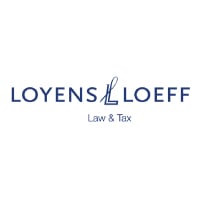

General Counsel / Legal Director | Funda




Róbin de Wit
General Counsel / Legal Director | Funda
What are the projects that you are most proud of working on over the past 12 months?
One of the biggest achievements recently was sealing the deal with our new private equity shareholder, General Atlantic. It was an intense process involving multiple stakeholders, but the outcome was a major milestone for the company. Having General Atlantic on board strengthens our strategic position and sets us up for future growth.
Another project I am proud of is how we are progressing in our ESG readiness program. We have taken a structured approach to align our practices with CSRD standards, ensuring we are not just compliant, but that we also live up to our values and corporate mission.
On top of that, we have made great progress with our AI roadmap. Rather than just randomly experimenting with new tools, we have built a framework that encourages exploration while safeguarding responsible practices. This ensures that innovation does not come at the expense of accountability or (brand) trust.
Have you had any experiences during your career as a lawyer that stand out as particularly unique or interesting?
One of the greatest experiences during my time as a lawyer at my former law firm was working in our US offices, including Washington, Palo Alto, and San Francisco. It was a great opportunity to connect with colleagues there, build new and strengthen existing client relationships, and put the Amsterdam office on the radar for US clients. That effort paid off, leading to many new projects for US based clients. Also, collaborating with colleagues from different nationalities and jurisdictions was super insightful and enriching.
What do you think sets you apart from other in-house counsel?
I think one thing that sets me apart is my ability to navigate different personalities while staying professional and always keeping the company’s interests first. I am approachable, which means colleagues are comfortable involving me early in projects rather than trying to “work around” Legal. That kind of trust ensures we can address potential issues before they become real problems.
I also have a strong business sense. I do not just look at issues from a legal standpoint, but also try to understand the bigger picture: what is the business trying to achieve and how could Legal enable that? It is easy to get caught up in rules, but flexibility and pragmatism often lead to better outcomes.
Finally, I am naturally curious. I like understanding different parts of the company, not just from a legal perspective but also from an operational and strategic one. That curiosity helps me identify risks and opportunities that might not be obvious at first sight.
What do you think are the most important attributes for a modern in-house counsel to possess?
Three attributes stand out for me:
Curiosity: always ask questions and try to understand the broader context of your company, its stakeholders and the industry; only then can you provide the best advice and anticipate challenges effectively. Curiosity helps you to ask the right questions, not just provide answers.
Flexibility: business and the world around it change fast and legislation does not always keep pace. Being flexible to find solutions rather than obstacles makes Legal a trusted business partner rather than a bottleneck.
Tech-savviness: always stay up to date of new technological trends, because these developments shape the world in which your company operates. If you do not understand the environment your company is navigating, it is much harder to give relevant advice.
How can general counsel foster a corporate culture that supports ESG principles and compliance across all levels of the organisation?
It starts at the top, so the key is to make ESG a top-level priority. ESG will be ineffective if you just introduce policies and hope they stick. You need leadership buy-in. I have found that giving clear presentations, supported by external experts, can help to create a sense of urgency. Involving your accountant can also be effective, especially when it comes to persuading the (supervisory) board or general meeting. It is then important to assign ESG responsibilities cross-functionally. The organisation itself must take ownership and feel (and be held) accountable. Only then can true integrated compliance be achieved.